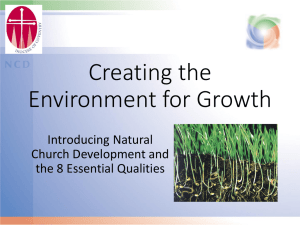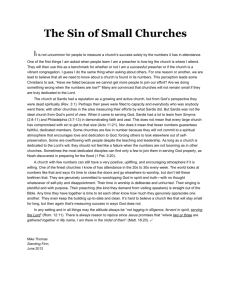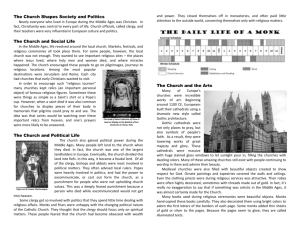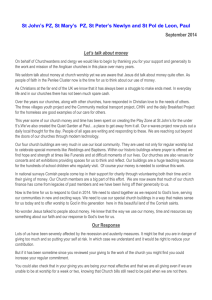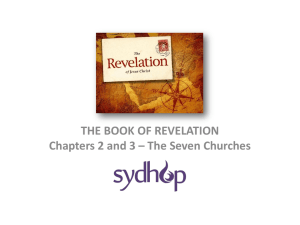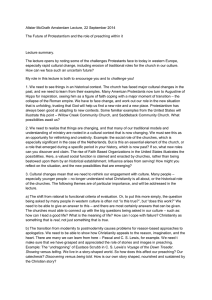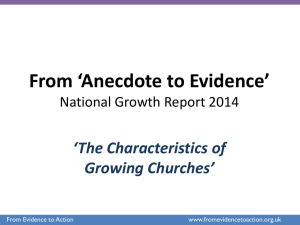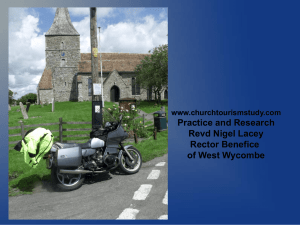Challenging the myth: Churches and grant funding
advertisement
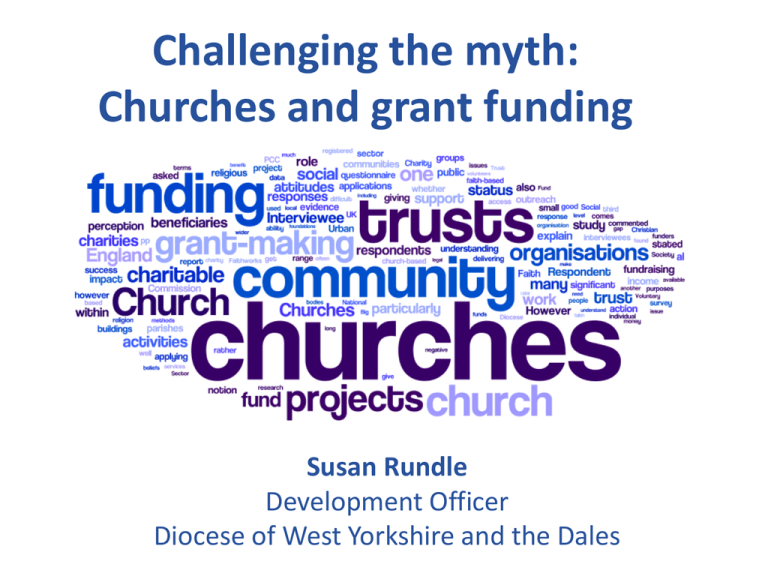
Challenging the myth: Churches and grant funding Susan Rundle Development Officer Diocese of West Yorkshire and the Dales Introduction • Research examining – Notion that “we can’t get funding, we’re a church” and – Considering the impacts of attitude and relationship on the grant-making process • Published in Voluntary Sector Review, July 2013 Introduction • Practical implications of the research • How has it changed working practises? • How can it inform future working practises? Research Summary • Talking to both funders and churches to understand their attitudes when applying for community based projects • Findings – Grant making trusts will fund churches to do community projects – Churches have to prove they’re doing community projects – Churches need to be able to understand their legal status – Many churches do not understand their own legal status Research Summary • Churches can access funding from grant-making trusts ...BUT – Churches need support to understand and explain their own charitable status – The onus is on the church to show how their project will benefit the wider community Myths • Churches can’t get funding! • You have to have a separate charity to be able to access funding • Churches are only interested in converting people not being part of the community Challenges • Understanding! – Churches being able to explain what and why they’re running projects – Churches understanding their own legal status – churches recognising the need to properly explain themselves and their projects – not assuming knowledge – Funding is about building relationships Overcoming the challenges • Relationships – Never built on half truths • Understanding – Training is vital • Legal status • Project development • Developing and communicating vision Overcoming the challenges • Fundraising basics – Creating a case for support – Developing need – Communicating vision – Who we are? – What are we doing? – Why us? – Why now? Examples • Wakefield Cathedral – Phase 1 – £2.2m reording project – £1.6m from Heritage Lottery Fund – Much of the rest from funders who ‘don’t fund church’ including: • Coalfields Regeneration Trust - £100,000 • Wakefield Council - £200,000 Examples • St Mary Magdalene, Outlane – 1930’s Church used by range of people – Needed to redo the kitchen/boiler – Asked the local council for help – they said you need to create a separate charity to run the ‘hall’ – They said you can’t get funding if you’re a church – Training and support to build their capacity – £10,000 Awards for All grant for the Kitchen – £2,000 Local Authority Grant – Built capacity as now gone for money for hearing loop, children's disco equipment and boiler! Discussion • How can you apply this in your Diocese? • What can we do nationally to overcome some of the challenges? Lessons • How do we apply the research? – Training for PCC’s – Build capacity with people applying for funding – Building relationships and trust with funders – Sharing stories – Linking similar projects at different stages More information Susan Rundle Development Officer Diocese of West Yorkshire and the Dales susan.rundle@westyorkshiredales.anglican.org Article available online via Voluntary Sector Review or email for a copy

